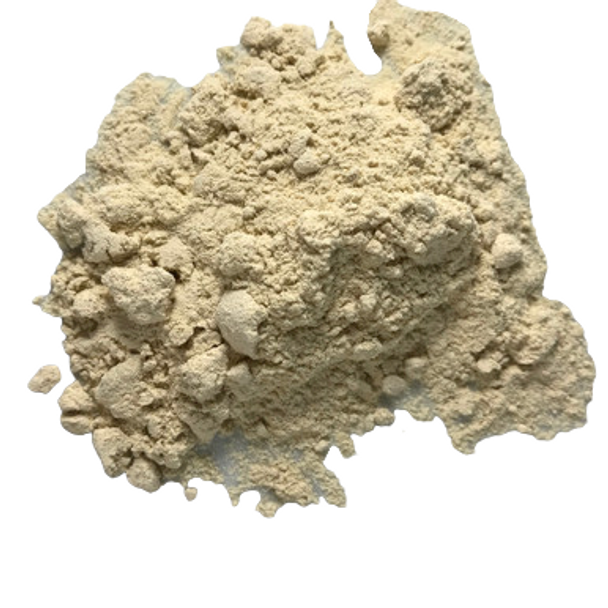Price Per Ounce / Precio Cada Onza
Astragalus Root Powder, Organic - Raiz de Astragalo, Organico
- SKU:
- SPV-0224
Description
Astragalus root has a rich history of use in Asian cultures. The herbaceous perennial is a member of the pea family and is native to China, Mongolia, and North Korea. Historically considered a Qi tonic in Traditional Chinese Medicine, it is often blended into herbal formulas. Our astragalus powder is ground from organically cultivated Astragalus membranaceus roots. Astragalus root powder is mildly sweet and can be sprinkled on food and whipped into smoothies.
Astragalus has a rich history of use in Chinese and Asian cultures. It is native to China, Mongolia and North Korea, and is an ancient component of Traditional Chinese Medicine (TCM). The herb was mentioned in the Divine Husbandman's Classic of the Materia Medica, written anonymously during the first century AD and attributed to the teachings of the legendary figure Shennong who is thought to have lived approximately 5,000 years ago.
Astragalus supports immune health to help you stay feeling your best and supports the body’s immune defenses to stay feeling healthy. Astragalus is used in Traditional Chinese Medicine as an adaptogen to help increase energy and resistance to stress.*
Astragalus is an herbaceous perennial, growing between 25 and 40 centimeters in height. It grows in grassy regions and on mountainsides, requiring plenty of exposure to the sun. When grown for cultivation, the plants are traditionally harvested after four or five years, with the roots collected in spring or fall. The roots are dried in the sun and then sliced for distribution. The slices are yellow in color and have a sweet, moistening taste with a firm, fibrous texture.
Most authorities on TCM recommend taking 9-15 grams (3 to 5 tablespoons) of the whole herb per day as a decoction, made by boiling the ground, dried root in water for a few minutes and then brewing the tea. It may also be taken in capsule or extract form. Astragalus is widely used in TCM for a variety of ailments and functions. It is traditionally valued for supporting healthy immune function and has been observed to support the heart in healthy subjects. Other common names include membranous milkvetch and huang qi.
Precautions
No known precautions. We recommend that you consult with a qualified healthcare practitioner before using herbal products, particularly if you are pregnant, nursing, or on any medications.
*This statement has not been evaluated by the Food and Drug Administration. This product is not intended to diagnose, treat, cure, or prevent any disease. For educational purposes only.
___________________________________________________________________________________________________________________________________________________________________________________________________________________________________________________________________________________________________
La raíz de astrágalo tiene una rica historia de uso en las culturas asiáticas. La planta herbácea perenne es miembro de la familia de los guisantes y es originaria de China, Mongolia y Corea del Norte. Históricamente considerada un tónico Qi en la Medicina Tradicional China, a menudo se mezcla en fórmulas de hierbas. Nuestro polvo de astrágalo se muele a partir de raíces de Astragalus membranaceus cultivadas orgánicamente. El polvo de la raíz de astrágalo es ligeramente dulce y se puede espolvorear sobre la comida y batir en batidos.
El astrágalo tiene una rica historia de uso en las culturas china y asiática. Es nativo de China, Mongolia y Corea del Norte, y es un antiguo componente de la Medicina Tradicional China (MTC). La hierba fue mencionada en el Clásico del Divino Esposo de la Materia Médica, escrito anónimamente durante el primer siglo d.C. y atribuido a las enseñanzas de la legendaria figura de Shennong que se cree que vivió hace aproximadamente 5.000 años.
El astrágalo ayuda a la salud inmunológica para que te sientas mejor y apoya las defensas inmunológicas del cuerpo para que te sientas saludable. El astrágalo se usa en la Medicina Tradicional China como un adaptógeno para ayudar a aumentar la energía y la resistencia al estrés.
El astrágalo es una planta herbácea perenne, que crece entre 25 y 40 centímetros de altura. Crece en regiones herbáceas y en las laderas de las montañas, y requiere mucha exposición al sol. Cuando se cultiva, las plantas se cosechan tradicionalmente después de cuatro o cinco años, y las raíces se recogen en primavera u otoño. Las raíces se secan al sol y luego se cortan para su distribución. Las rebanadas son de color amarillo y tienen un sabor dulce y húmedo con una textura firme y fibrosa.
La mayoría de las autoridades de la MTC recomiendan tomar 9-15 gramos (3 a 5 cucharadas) de la hierba entera por día como una decocción, hecha hirviendo la tierra, secando la raíz en agua durante unos minutos y luego preparando el té. También puede tomarse en forma de cápsula o extracto. El astrágalo se utiliza ampliamente en la MTC para una variedad de dolencias y funciones. Tradicionalmente se valora para apoyar la función inmunológica saludable y se ha observado que apoya al corazón en sujetos sanos. Otros nombres comunes incluyen "milkvetch" membranoso y "huang qi".
Precauciones
No se conocen las precauciones. Recomendamos que consulte a un profesional sanitario cualificado antes de utilizar productos herbales, especialmente si está embarazada, amamantando o tomando algún medicamento.
* Esta declaración no ha sido evaluada por la Administración de Alimentos y Medicamentos. Este producto no pretende diagnosticar, tratar, curar o prevenir ninguna enfermedad. Sólo tiene propósitos educativos.





